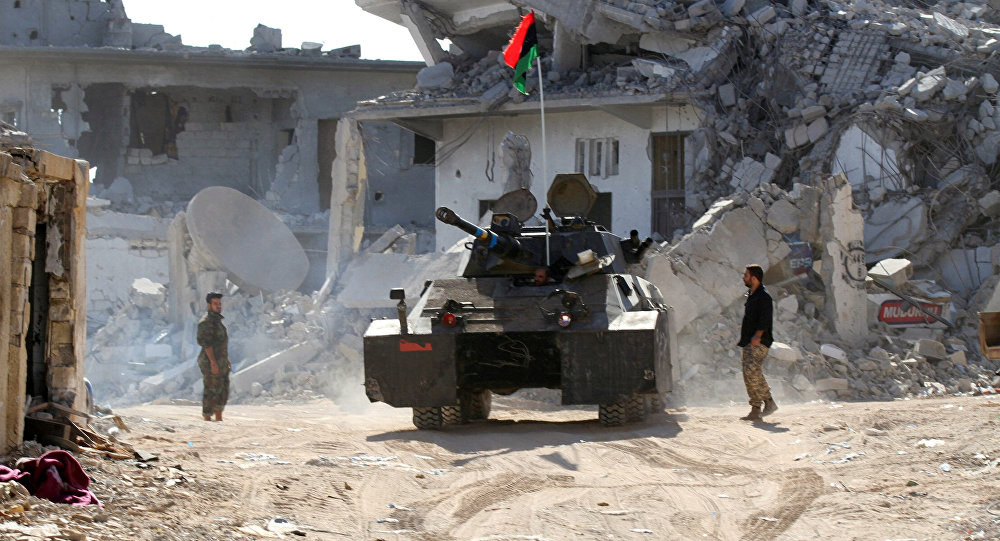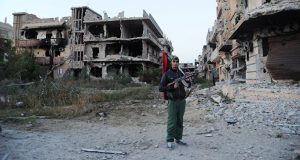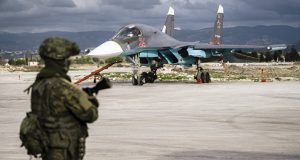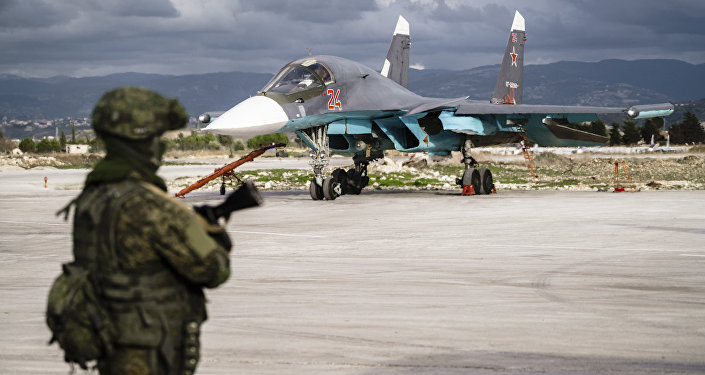Libya is torn apart by several rivaling forces that have turned the country into a stage for muscle-flexing, political analyst and Director of the Center of Strategic Trends Studies Ivan Konovalov told reporters.
“De jure there is a state, but de facto it does not exist. Libya is just a stage for muscle-flexing,” Konovalov
Libya has been in chaos following the 2011 NATO-led intervention which led to Colonel Muammar Gaddafi being overthrown and killed. The country, torn apart by warring tribal militias, was ruled by two parliaments and two governments until December 2015 when the UN-backed Government of National Accord led by Prime Minister Fayez al-Sarraj was established.
However, the House of Representatives based in Tobruk, a port city on Libya’s eastern Mediterranean coast, later refused to cooperate. In February, General Khalifa Haftar, commander of the armed forces loyal to the government in Tobruk, and Sarraj held talks in Cairo, but were unable to reach any agreement.
Konovalov further commented on a plan to divide Libya into three regions, Tripolitania, Fezzan, and Cyrenaica. These were three separate provinces located in the territory of present-day Libya prior to the 1911 Italo-Turkish War.
The political analyst is skeptical that the plan would help to resolve the Libyan crisis since it does not take into account the geographical distribution of the rivaling forces at the moment.
“It is not the three historical regions of Libya that are engaged in the ongoing political struggle in the country, but rather the East and the West. There is a government in Tobruk which has worked together with the national army headed by Khalifa Haftar. Then there is Tripoli, the city hosting the Government of National Accord largely made up of Islamists. There is another powerful force in the country, namely the Misrata militias. They are the ones whom Haftar is fighting,” the analyst said, adding that Daesh, an internationally-condemned terrorist group based in Iraq and Syria, has also been active in Libya.
The suggestion to divide Libya into three parts is reported to have been made by one of US President Donald Trump’s key security advisers. Sebastian Gorka, a member of the national security advisory staff and a deputy assistant to the US president, is said to have presented the plan to a senior European diplomat prior to Trump’s inauguration. The initiative was ostensibly branded as “the worst possible solution” to the Libyan crisis.
“The people of Libya as well as the key forces engaged in the power struggle in the country will not support such an approach,” Konovalov said.



